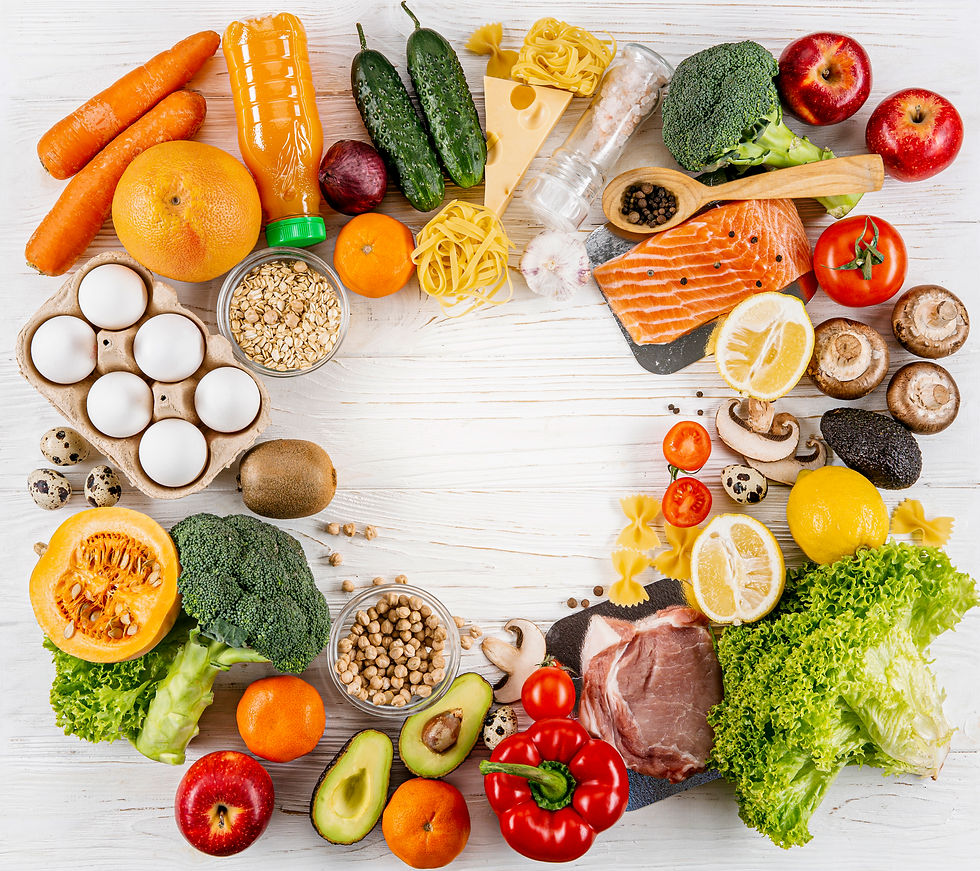- Eliana Leal

- Jul 5
- 2 min read

Have you ever stopped to consider that what you put on your plate can directly impact how you feel? We're not talking about trendy diets or miracle superfoods, but rather a more mindful and compassionate view of how food influences our emotional and mental state.
In recent years, scientists and researchers have been diving deep into the concept of emotional nutrition — an approach that goes far beyond calorie counting. Instead, it focuses on how specific foods and natural substances interact with the body, the brain, and our mood.
The Gut and Mood: A Powerful Connection

It’s no coincidence that you feel more sensitive or irritable when your digestion is off. The gut is often called the “second brain” because it houses around 100 million neurons and produces about 90% of the body’s serotonin — the neurotransmitter responsible for feelings of well-being*.
When your gut microbiome is out of balance, your whole body feels it. Symptoms like anxiety, brain fog, fatigue, and mood swings can appear. That’s why feeding your microbiota wisely is also an act of emotional self-care.
Foods and Substances That Support Mental Well-Being
(Without hype or miracle promises)

1. Natural Fibers and Fermented Foods
Fibers such as oats, green bananas, and chia seeds help nourish the good bacteria in your gut. Fermented foods like kefir and kombucha have also gained popularity for containing natural probiotics.
Editorial tip: Always consult a healthcare professional, especially in cases of intestinal disorders or compromised immunity.
2. Adaptogens
These are natural substances — usually herbs and roots — studied for their stress-regulating properties. Ashwagandha, Rhodiola rosea, and maca root are a few examples. A study published in Phytotherapy Research (2012) suggests that adaptogens can help reduce mental fatigue and increase resilience to stress**.
3. Blue Zones-Inspired Foods
The Blue Zones are areas of the world where people live longer and healthier lives. Their diets focus on whole, unprocessed foods: fruits, leafy greens, legumes, minimal meat, and very few processed products.
But it’s not just about what you eat — it’s also how you eat. In Blue Zones, people value simplicity, rituals, and the joy of sharing meals with others.
Undigested Emotions: The Body Feels It Too

Often, digestive discomfort is more about emotions than food. High stress, fast-paced routines, unresolved relationships, and ignoring your inner voice can all disrupt digestion.
Adding intentional pauses, quiet moments, and simple rituals like eating without screens and chewing mindfully can be more effective than any trendy "functional food."
Important Note

This article does not replace professional medical advice. Its goal is to provide reliable, accessible information so you can begin observing the connection between food, mind, and emotions with more gentleness and awareness.
*Source: Harvard Health Publishing
**Source: Panossian & Wikman

















Comments